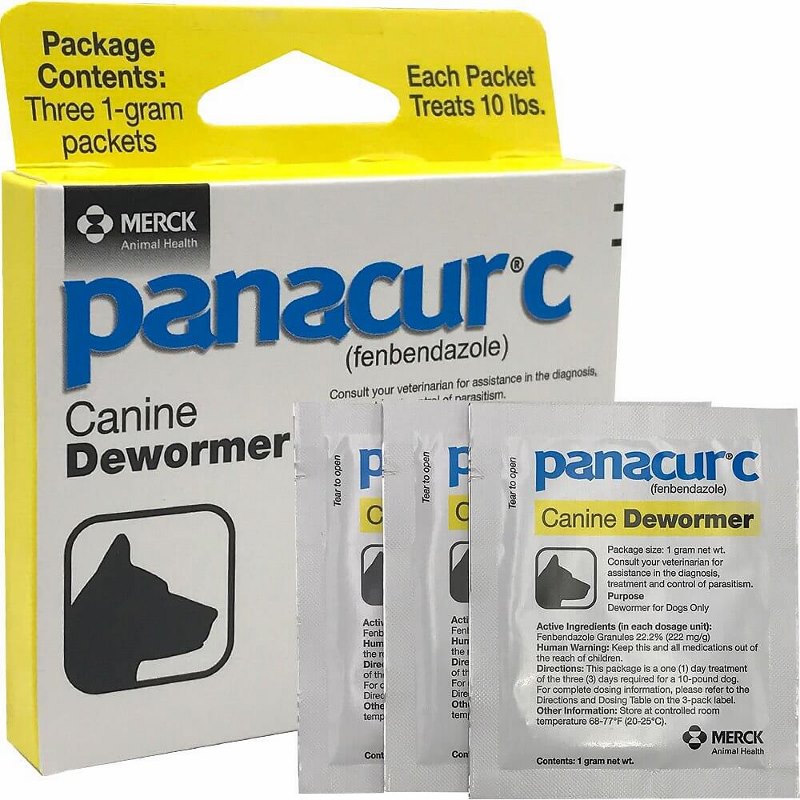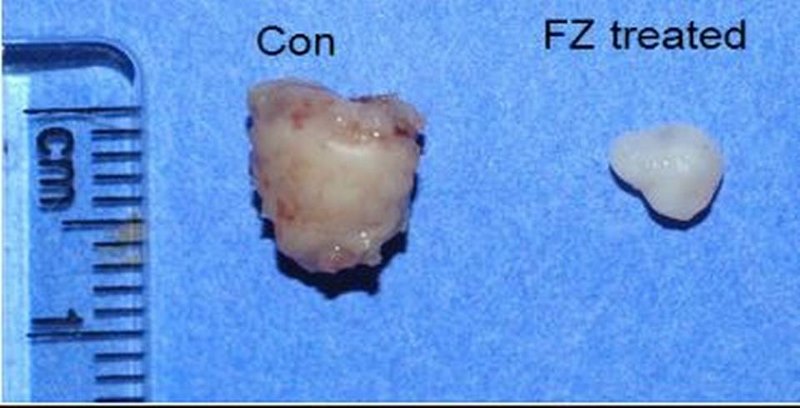Towards the end of 2019, the news broke that a Korean radiology oncologist, Kim Ja-young, had posted on YouTube about Fenbendazole. The three part video, released on October 7th, seemed to be aimed at late-stage cancer patients. Included in the videos were instructions on how to take fenbendazole ‘safely’. So, what is fenbendazole, and can it cure cancer?
Fenbendazole is a broad spectrum anti-parasitic drug, which is effective on a wide range of animals. The drug will deal with many parasites, including: roundworm; hookworm, and; tapeworm. And it is used to treat everything from rabbits to reptiles, and from cattle to cats. Most news outlets, however, opted to simply describe fenbendazole as a ‘dog dewormer’. Which is fair enough.
Toxicity
So, while fenbendazole is very effective in animals, it’s not used in humans. But, not for reasons of toxicity, it’s just that other drugs in the same family are used for people. In terms of toxicity:
Fenbendazole is poorly absorbed from the gastrointestinal tract in most species. The LD50 in laboratory animals exceeds 10 g/kg when administered orally.
https://en.wikipedia.org/wiki/Fenbendazole
And it is this low absorption rate that was a feature of the Kim Ja-young’s videos. Her argument was that the drug had been around for 40 years, so had been established as safe. And that it was also known to have low toxicity in humans. So, taking fenbendazole to cure your cancer would, at the very least, be harmless…
Which is not how it played out, according to the Korea Biomedical Review:
Recently, several cancer patients were admitted to university hospitals due to side effects after taking deworming medicines and one of them died, amid growing concerns over cancer patients’ rush to take anthelmintic drugs to cure their disease.
https://www.koreabiomed.com/news/articleView.html?idxno=6835
But why would an oncologist think that a ‘dog dewormer’, like fenbendazole, could cure cancer in the first place?!
Well, it’s actually not a new idea.

https://homelabvet.com/product/panacur-c-3/
Earlier Fenbendazole Research
Back in 2008, a report was published explaining how fenbendazole had ruined some cancer research.
The research intended to use mice to grow human lymphoma cells. The mice were given fenbendazole and a bunch of vitamins to ensure they were healthy enough to be given cancer…! Thereafter, the lymphoma cells failed to grow. It seemed that the fenbendazole and the vitamins had prevented the lymphoma cancer from taking hold in the mice.
At the end of this report, were the following statements:
- Our study showed that fenbendazole alone did not significantly affect growth of the P493-6 human lymphoma cell line in SCID mice.
- Most importantly, our observation that fenbendazole in combination with supplemented vitamins significantly inhibited tumor growth has implications for its use during antitumor studies because it may cause unpredictable interactions with test substances and thus alter research results.
Point 1 makes clear that, whatever was happening, it wasn’t just down to the fenbendazole.
Point 2 goes into how the noted effect was one of prevention, not cure. The fenbendazole and vitamins did not cure a cancer that had grown. It stopped the cancer growing in the first place. This point was actually intended as a warning to other researchers, that using fenbendazole could skew the results of their studies.
in 2013, there was a study entitled, Fenbendazole as a Potential Anticancer Drug.
The conclusion of this report was:
These studies provided no evidence that fenbendazole would have value in cancer therapy, but suggested that this general class of compounds merits further investigation.
https://www.ncbi.nlm.nih.gov/pmc/articles/PMC3580766/
All of which seemed pretty conclusive: fenbendazole couldn’t cure cancer.
But science never sleeps…
More Recent FenBendazole Research
In 2018, another report was published, which has the following as its title:
Fenbendazole acts as a moderate microtubule destabilizing agent and causes cancer cell death by modulating multiple cellular pathways
https://www.nature.com/articles/s41598-018-30158-6
A title that makes up for in clarity, what it loses in catchiness.
Said report finishes with the words, “[Fenbendazole] induced preferential elimination of cancer cells both in vitro and in vivo.”
Which is to say: fenbendazole was able to shrink some cancer tumours both in test tubes, and in mouse studies.
Which is an extremely promising development, and was widely reported as such. For example:
[Fenbendazole} can be a good candidate for anticancer therapy. Alternatively, it can also be used as an adjuvant therapy.https://www.thehindubusinessline.com/news/science/veterinary-drug-may-be-repurposed-for-human-cancers-study/article24793200.ece

Source: The Hindu Business Line
Joe Tippens
To add to the interest in fenbendazole, it was around this time that Joe Tippens’ story was developing. Joe had stage 4 lung cancer and a median prognosis of three months to live. His oncologist put him on a drug trial that had the potential to increase this by a year. Joe wanted to see what other options there were. So he did his own research and discovered fenbendazole. The research papers and personal accounts that Joe read, convinced him to start taking fenbendazole himself.
Joe went on to develop a treatment protocol for himself, which included: fenbendazole, Vitamin E, Curcumin and CBD oil.
In addition to which, Joe was still participating in the clinical trial….
Joe went on to achieve remission, the only one in his clinical trial to do so. And he’s still with us, and writing about his experiences, today.
Joe is very clear in his own mind that it was the fenbendazole that made the difference. And with some reason. In discussing all this with his oncologist, Joe was told that science has known for decades that anthelmintic (anti-parasitic) drugs can be effective against cancer. The oncologist said that Levamisole is one such medication.
Indeed, Wikipedia has this to say of of the drug:
Levamisole has been tested in combination with fluorouracil to treat colon cancer. Evidence from clinical trials support its addition to fluorouracil therapy to benefit patients with colon cancer.
https://en.wikipedia.org/wiki/Levamisole
Side note: I’ve actually had flourouracil chemotherapy but I checked, and it didn’t come with levamisole.
Questions Arising…
All of which leads to the obvious question: why isn’t more research being done to find out whether anti-parasitic drugs can cure cancer.
Well, Joe asked his oncologist this, and reports the answer as:
Probably because of money…all of these drugs are far off-patent and nobody is going to spend a gazillion dollars to repurpose them for cancer…..only to have generic competition the next day.
https://www.mycancerstory.rocks/single-post/2016/08/22/Shake-up-your-life-how-to-change-your-own-perspective
Which… I’m just not sure about.
Patents for anti-parasitic drugs will be owned by many companies, across a multitude of countries. That none of them have tried to repurpose an anthelmintic as chemotherapy seems implausible. I mean, all of these companies like money, right?
Moving Forward
Naturally, in the light of personal accounts like Joe’s, and the 2018 report, there was a lot of renewed interest in fenbendazole. This interest is reflected in the articles that started cropping up on the cancer sites, at that time.
In August 2019, BreastCancer.org published, What My Patients Are Asking: Can Dog Deworming Medicine Treat Breast Cancer?
In this post, Brian Wojciechowski, an oncologist in Deleware County, USA, says:
While some studies on cells in petri dishes and in mice suggest that fenbendazole might have anti-cancer properties, no studies have been done in people and it’s not clear what side effects it may cause or what the optimal dose might be.
https://www.breastcancer.org/community/podcasts/deworming-20190830
It was just six weeks after this article was published, that Kim Ja-young posted her videos on YouTube.
And one definite thing that came from these videos, was a shortage of fenbendazole in Korea…
And, almost a year later, The Korean Times reported that people were still buying up fenbendazole. But not just as a chemotherapy any more. In the intervening months, fenbendazole, and similar drugs, had become seen as the cure for allergic rhinitis, COVID-19, diabetes, hemorrhoids, and cancer!
And this, despite the fact that there haven’t been any clinical trials that show fenbendazole can cure cancer. In fact, no clinical trials into the effect of fenbendazole have even been announced.
And the reason for this, as explained by the article in the Korean Times, is:
There are already cytotoxic anticancer drugs with the same mechanism as fenbendazole, so there is no reason to take risks by taking unproven drugs.
https://www.koreatimes.co.kr/www/nation/2020/08/119_294308.html
Conclusion
In truth, there doesn’t seem to be any evidence that fenbendazole can cure cancer.
That said, there are certainly promising personal accounts, like that of Joe Tippens. Something certainly happened to Joe’s cancer, and the fenbendazole may have contributed. But Joe was on a cocktail of his own medications and whatever was in the clinical trial… I, for one, would be happier if I knew that someone was researching what went on there.
Likewise with research into the effects of anti-parasitics, in general. All research is good research.
That said, it has to be acknowledged that this type of research has already happened, to some extent. Otherwise levamisole would never have been signed off for use as a chemotherapy…
And it seems that researchers have already determined that fenbendazole acts as a cytotoxic on cancer cells. So, given that effective cytotoxic drugs already exist, how necessary is further research into fenbendazole. Especially as there are only so many research dollars to go around…
So, while all research is good research, targeted research is better.
To me it seems pretty cleat that fenbendazole cannot cure cancer. I wish it could, but it can’t.
If, however, you feel you need to take fenbendazole, please be careful. Yes, it has a low toxicity to humans, but it can be harmful. It almost certainly has side effects. And it could interact in unexpected, and negative, ways with any other medication you might be on.

